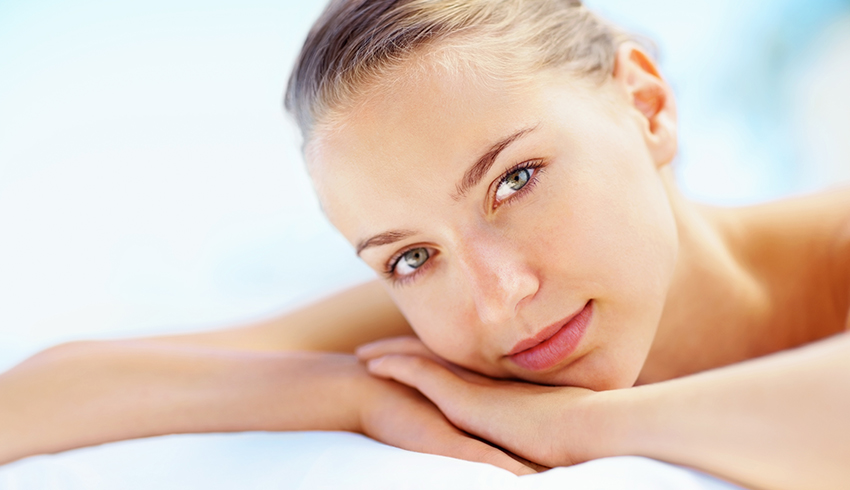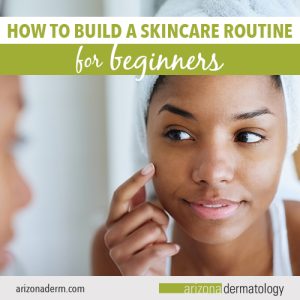Good skin care — including sun protection and gentle cleansing — can keep your skin healthy and glowing.
Don’t have time for intensive skin care? You can still pamper yourself by acing the basics. Good skin care and healthy lifestyle choices can help delay natural aging and prevent various skin problems. Get started with these five no-nonsense tips.
1. Protect yourself from the sun

One of the most important ways to take care of your skin is to protect it from the sun. A lifetime of sun exposure can cause wrinkles, age spots and other skin problems — as well as increase the risk of skin cancer.
For the most complete sun protection:
- Use sunscreen. Use a broad-spectrum sunscreen with an SPF of at least 15. Apply sunscreen generously, and reapply every two hours — or more often if you’re swimming or perspiring.
- Seek shade. Avoid the sun between 10 a.m. and 4 p.m., when the sun’s rays are strongest.
- Wear protective clothing. Cover your skin with tightly woven long-sleeved shirts, long pants and wide-brimmed hats. Also consider laundry additives, which give clothing an additional layer of ultraviolet protection for a certain number of washings, or special sun-protective clothing — which is specifically designed to block ultraviolet rays.
2. Don’t smoke
Smoking makes your skin look older and contributes to wrinkles. Smoking narrows the tiny blood vessels in the outermost layers of skin, which decreases blood flow and makes skin paler. This also depletes the skin of oxygen and nutrients that are important to skin health.
Smoking also damages collagen and elastin — the fibers that give your skin strength and elasticity. In addition, the repetitive facial expressions you make when smoking — such as pursing your lips when inhaling and squinting your eyes to keep out smoke — can contribute to wrinkles.
In addition, smoking increases your risk of squamous cell skin cancer. If you smoke, the best way to protect your skin is to quit. Ask your doctor for tips or treatments to help you stop smoking.
3. Treat your skin gently
Daily cleansing and shaving can take a toll on your skin. To keep it gentle:
- Limit bath time. Hot water and long showers or baths remove oils from your skin. Limit your bath or shower time, and use warm — rather than hot — water.
- Avoid strong soaps. Strong soaps and detergents can strip oil from your skin. Instead, choose mild cleansers.
- Shave carefully. To protect and lubricate your skin, apply shaving cream, lotion or gel before shaving. For the closest shave, use a clean, sharp razor. Shave in the direction the hair grows, not against it.
- Pat dry. After washing or bathing, gently pat or blot your skin dry with a towel so that some moisture remains on your skin.
- Moisturize dry skin. If your skin is dry, use a moisturizer that fits your skin type. For daily use, consider a moisturizer that contains SPF.
4. Eat a healthy diet
A healthy diet can help you look and feel your best. Eat plenty of fruits, vegetables, whole grains and lean proteins. The association between diet and acne isn’t clear — but some research suggests that a diet rich in fish oil or fish oil supplements and low in unhealthy fats and processed or refined carbohydrates might promote younger looking skin. Drinking plenty of water helps keep your skin hydrated.
5. Manage stress
Uncontrolled stress can make your skin more sensitive and trigger acne breakouts and other skin problems. To encourage healthy skin — and a healthy state of mind — take steps to manage your stress. Get enough sleep, set reasonable limits, scale back your to-do list and make time to do the things you enjoy. The results might be more dramatic than you expect.
From Mayo Clinic to your inbox
Sign up for free, and stay up to date on research advancements, health tips and current health topics, like COVID-19, plus expertise on managing health. Click here for an email preview.
To provide you with the most relevant and helpful information, and understand which information is beneficial, we may combine your email and website usage information with other information we have about you. If you are a Mayo Clinic patient, this could include protected health information. If we combine this information with your protected health information, we will treat all of that information as protected health information and will only use or disclose that information as set forth in our notice of privacy practices. You may opt-out of email communications at any time by clicking on the unsubscribe link in the e-mail.
Jan. 22, 2022
- Skin care. American Osteopathic College of Dermatology. http://www.aocd.org/?page=SkinCare. Accessed Oct. 12, 2017.
- Prevention guidelines. Skin Cancer Foundation. http://www.skincancer.org/prevention/sun-protection/prevention-guidelines. Accessed Oct. 12, 2017.
- Clothing: Our first line of defense. Skin Cancer Foundation. http://www.skincancer.org/prevention/sun-protection/clothing/clothing-our-first-line-of-defense. Accessed Oct. 12, 2017.
- Brinker TJ, et al. A dermatologist’s ammunition in the war against smoking: A photoaging app. Journal of Medical Internet Research. 2017;19:1. https://www.jmir.org/2017/9/e326/. Accessed Oct. 12, 2017.
- Dusingize JC, et al. Cigarette smoking and the risks of basal cell carcinoma and squamous cell carcinoma. Journal of Investigative Dermatology. 2017;137:1700.
- Dry skin: Overview. American Academy of Dermatology. https://www.aad.org/public/diseases/dry-sweaty-skin/dry-skin. Accessed Oct. 12, 2017.
- How to create an anti-aging skin care plan. https://www.aad.org/public/skin-hair-nails/younger-skin/creating-anti-aging-plan. Accessed Oct. 12, 2017.
- Melnik BC. Linking diet to acne metabolomics, inflammation, and comedogenesis: An update. Clinical, Cosmetic and Investigational Dermatology. 2015;8:371.
- Palma L, et al. Dietary water affects human skin hydration and biomechanics. Clinical, Cosmetic and Investigational Dermatology. 2015:8;413.
- Hunter HJA, et al. The impact of psychosocial stress on healthy skin. Clinical and Experimental Dermatology. 2015;40:540.
See more In-depth
See also
- Acne mistakes
- Aging skin
- Applying sunscreen? Don’t be stingy
- Does sunscreen expire?
- Don’t believe shaving myths
- Have brown or Black skin? Use sunscreen
- How to heal cracked heels
- How to heal cracked skin at thumb tip
- Mayo Clinic Minute: The many benefits of petroleum jelly
- Mayo Clinic Minute: Moisturizer tips from a dermatologist
- Piercings: How to prevent complications
- Pubic hair removal: Are there benefits?
- Self-tanners: Are they safe?
- Shaving hair
- Shaving too close can cause skin problems
- Mayo Clinic Minute: Shining the light on SPF in sunscreen
- Sun damage
- Summer skin rashes
- Summer sun: Know the danger zone
- Sunless tanning tips
- Sunscreen: One dose doesn’t do it
- Sunscreen shopping tips
- Sunscreen smarts: What’s your SPF IQ?
- Tattoos
- Protect thin skin
- Mayo Clinic Minute: Tips for dealing with dandruff
- Mayo Clinic Minute: Uncovering UPF in clothing
- Winter Skin Care
- Wrinkle creams
.



